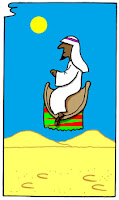
Spotted this in Tower Bridge Road, London at the weekend. (I could have done without the American spelling of 'cancelled' - but perhaps I'm too fussy!)
- all quiet on the Northern front

Spotted this in Tower Bridge Road, London at the weekend. (I could have done without the American spelling of 'cancelled' - but perhaps I'm too fussy!)





Due to the weather,
this week's ‘Spot The Dog’ competition
has been replaced with ‘Spot The Camel.’


 Old postcard. The Hill is on the far left
Old postcard. The Hill is on the far left 
'There were fine sunsets at Allonby when the low flat beach, with its pools of water and its dry patches, changed into long bars of silver and gold in various states of burnishing, and there were fine views - on fine days - of the Scottish coast. But, when it rained at Allonby, Allonby thrown back upon its ragged self, became a kind of place which the donkey seemed to have found out, and to have his highly sagacious reasons for wishing to bolt from…’

